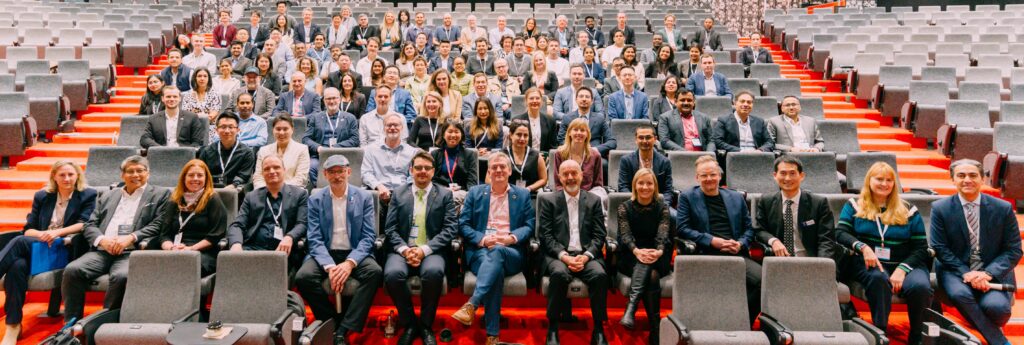Event date: November 18, 2024
The Decarbonising the Building Industry (DBI) 2024 Conference has established itself as a critical forum for addressing the climate challenges facing the built environment. Bringing together over 200 participants from 18 countries, the event explored innovative solutions to reduce carbon emissions and create sustainable cities. One of the highlights was a keynote by Professor Mat Santamouris, a global leader in energy-efficient architecture and urban heat island mitigation, who delivered a thought-provoking address on the pressing issue of urban overheating.

Professor Mat Santamouris: Tackling the Urban Overheating Crisis
Professor Mat Santamouris painted a stark picture of urban overheating as a global crisis affecting over 1.7 billion people in 13,000 overheated cities worldwide. He began by highlighting the alarming increase in overheating hours, which have tripled since the 1980s, and its severe implications for energy consumption, public health, and environmental quality.
Santamouris detailed how urban overheating exacerbates energy demand for cooling, leading to higher costs and increased emissions. The inefficiency of power plants during heatwaves further compounds this issue, with decreased output and skyrocketing electricity prices. He cited examples such as a 2022 heatwave in France that caused electricity prices to surge from €50/MWh to €2,000/MWh, underscoring the economic burden of overheating on consumers.
The keynote also explored the human impact, particularly on vulnerable populations. Low-income communities are disproportionately affected, living in poorly insulated homes that amplify indoor temperatures and air pollution. These conditions lead to higher rates of heat-related mortality and mental health challenges. For instance, Santamouris noted that heat-related deaths among older adults in Europe rose by 85% between 2004 and 2021.
However, it’s not all dire news. Santamouris showcased groundbreaking solutions such as supercooling materials, which can lower surface temperatures by up to 10°C below ambient levels. These technologies have been successfully applied in projects like Riyadh, Saudi Arabia, where they reduced urban temperatures by 4°C and cooling energy consumption by 35%. He emphasized that implementing such solutions requires not only technological innovation but also financial mechanisms to monetize their impact and incentivize adoption.
A Call to Action for the Building Industry
Professor Santamouris’ keynote exemplified the core mission of DBI2024: bridging research, policy, and practice to address the built environment’s role in the climate crisis. His holistic approach to urban overheating aligns with the conference’s emphasis on interdisciplinary collaboration and innovation. By combining technological advancements with systemic changes, Santamouris urged stakeholders to move beyond simplistic solutions like tree planting and adopt integrated strategies for sustainable urban development.
As DBI2024 continues to explore pathways for decarbonising the building industry, Santamouris’ insights serve as a powerful reminder of the urgency and complexity of the challenges ahead. His keynote underscored the importance of coupling technological innovation with financial and policy frameworks to create resilient, low-carbon cities that prioritise human well-being.

